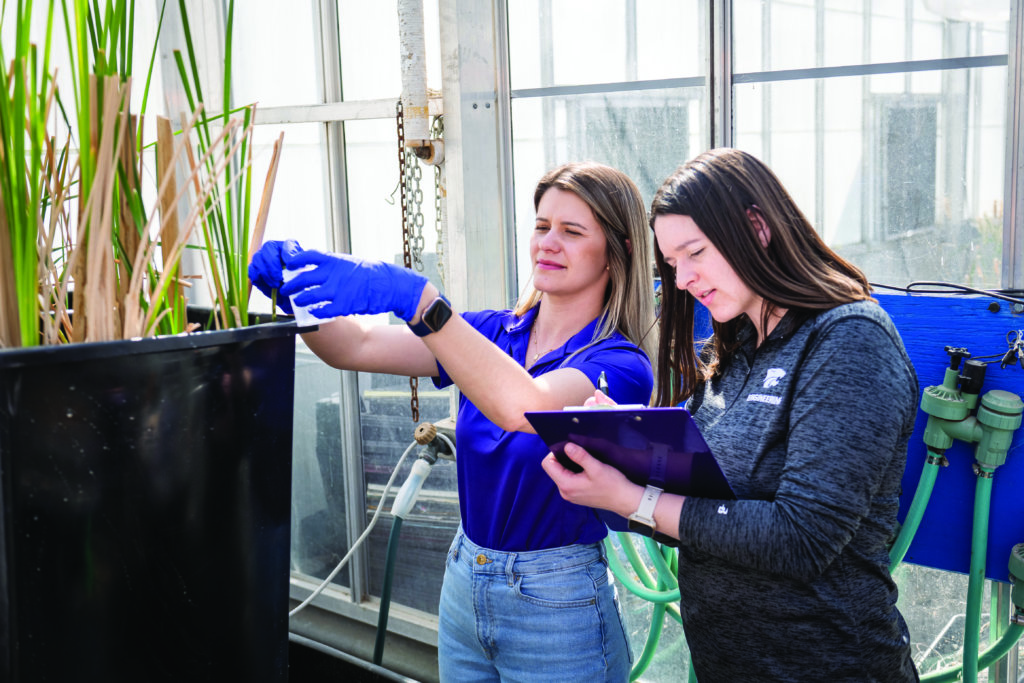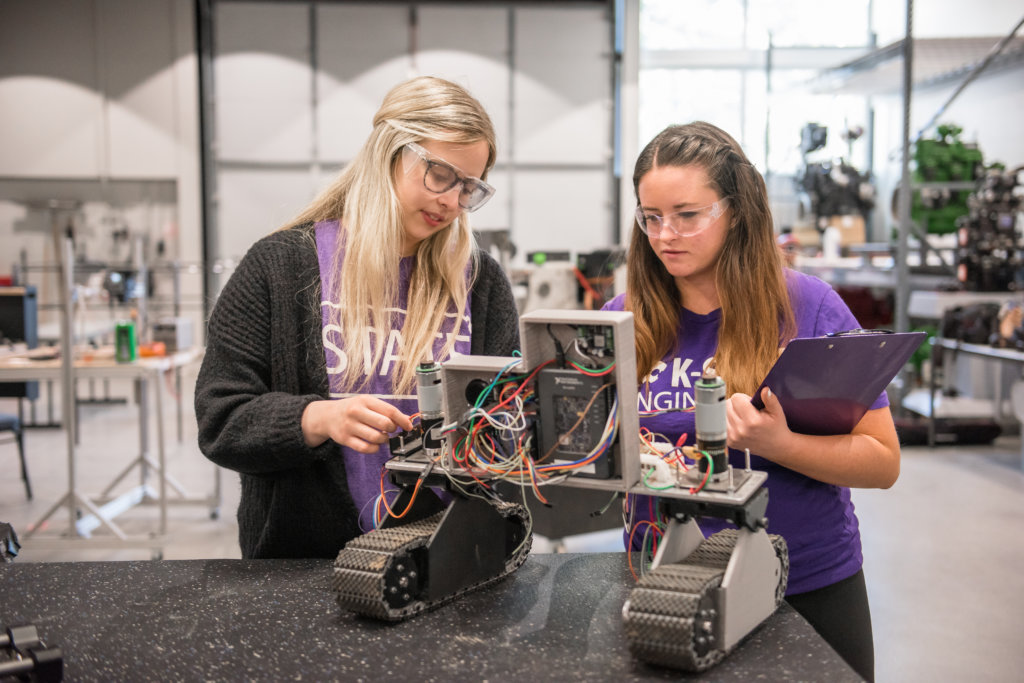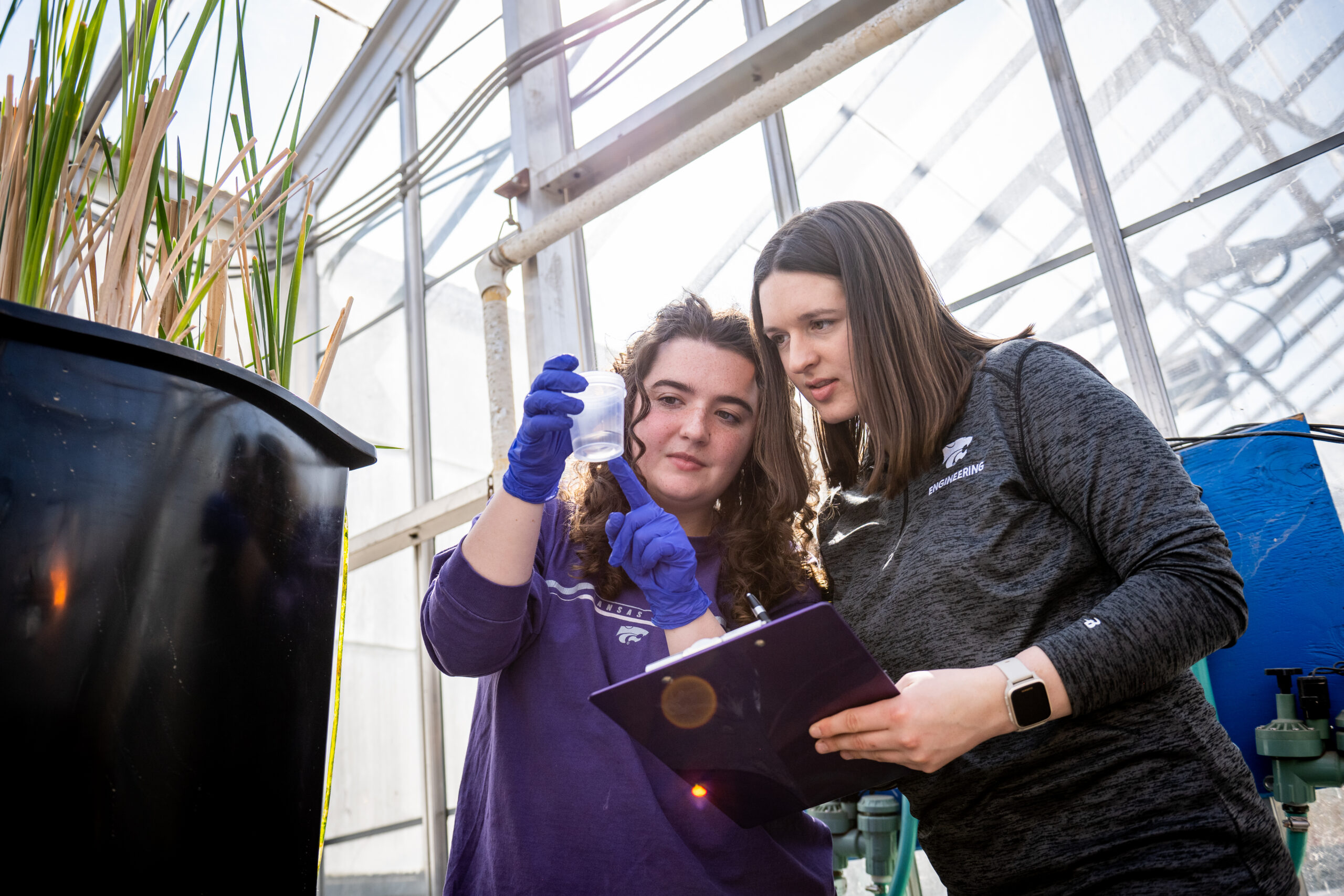Lauren Stanton was drawn to Kansas State University (K-State) by familial ties — growing up, weekends were reserved for visiting her older sisters on campus. Hence, following in their footsteps was an obvious choice when it was finally her turn to pursue higher education and explore her childhood passion for the environment. “I could envision myself thriving here and knew I would receive a quality education,” she says.
True enough, the last three years have been nothing short of enriching. Stanton opted for the B.S. in Biological Systems Engineering programme, which helps students develop the techniques and processes to work with living systems, including microbes, plants and animals. As she was able to tailor her curriculum to match her interests, Stanton chose to focus on the design and management of systems that impact natural resources. These include ecological engineering design; soil and water conservation; irrigation and drainage system design; and management, bioremediation, water quality and air pollution control.
So far, her academic journey has been shaped by two standout courses. “Soils” dug deep beneath surface-level knowledge, unravelling the intricate connection between agronomy and engineering, while “Ecological Engineering Design” allowed Stanton and her peers to explore the boundaries of sustainability and envision its integration into society. Female professors within the Department of Biological and Agricultural Engineering at K-State have been instrumental in their success.
“These women have not only encouraged me but demonstrated how to maintain professionalism while embracing my own personality,” Stanton shares. “They have been inspiring and supportive.”
Initiatives like the Society of Women Engineers (SWE) at K-State further exemplify the university’s dedication to empowering women in male-dominated fields. Through participation, Stanton not only found a community of like-minded individuals but also gained valuable insights from women in the industry. “I even had the privilege of attending the SWE National Conference, where I participated in sessions that helped me understand myself and boosted my confidence as a woman in engineering,” she says.

K-State’s Women in Engineering programme provides opportunities to connect, share and support with other female students. Source: Kansas State University
Experiential learning opportunities have been equally empowering. Her achievements as part of Engineers Without Borders and her undergraduate research role in Dr. Jeongdae Im’s Environmental Biotechnology Lab showcase K-State’s commitment to providing practical opportunities for women in the field. Stanton credits these experiences, coupled with design-based and lab-centric courses, for preparing her for her future.
“I am staying at K-State to pursue a Master’s in Biological and Agricultural Engineering while continuing my research with Dr. Im,” she shares. “After that, I plan on entering the industry to focus on conservation and ecological solutions. My time at K-State has given me the perseverance and knowledge to succeed in my career.”
Indeed, female engineers can pursue diverse, impactful careers upon graduating from K-State, as proven by success stories like Alison Renner. Her decision to study Biological Systems Engineering at K-State was influenced by her parents’ connection to the university. Her father’s positive experiences in the College of Engineering and her innate curiosity about how things worked led her to explore a major that seamlessly blended engineering with her interests in biology and medicine.
The B.S. in Biological Systems Engineering’s career-focused nature facilitated her seamless transition from academia to the professional biopharma field. “From the first intro class, students are shown several options for related careers,” she says. “The direction of my career path changed several times throughout my time in the programme, which was highly encouraged by my professors to research and learn more about them.”

The Biological Systems Engineering programme focuses on protecting and conserving our natural resources. Source: Kansas State University
The programme’s flexibility, not tethering students to a specific field, has proven invaluable in the job market. Today, Renner is a Process Engineer at Evolve Biologics in Texas, while the rest of her cohort landed entirely different roles at companies of various sizes across a range of sectors. However, they all credit their success to the competencies they developed as students.
For Renner, the programme’s emphasis on working with diverse groups, developing soft skills, honing technical communication, and mastering project management equipped her with a well-rounded skill set. Biological & Agricultural Engineering design classes guided by Dr. Lisa Wilken and Dr. Edwin Brokesh provided her with tools and mentorship critical for excelling in her first job as a Capital Projects Process Engineer at Pfizer. These competencies continued to be instrumental in her current role, where she’s noticed positive changes in gender representation.
“I have worked with more women in biopharma than any other STEM field,” she says. “It’s awesome to see. A diverse workforce is essential for a company’s continuous growth and improvement — even more so when working in an industry directly tied to healthcare. We must provide an alternative perspective to advocate first-hand for women’s healthcare needs.”
Looking ahead, Renner’s long-term professional goals are a testament to the drive she developed as a student. She is excited to help progress Evolve Biologics from a small team to a full manufacturing site with new technology the industry has never seen. If she requires assistance along the way, she will always have someone to call, thanks to K-State’s connected community of engineering alumni — all of whom are more than happy to help future or current professionals achieve their world-changing goals.
“K-State alumni are unique in that way,” Renner says. “So many of us are willing to guide or assist current students to set them up for a great future.”
For more information on building sustainable solutions with K-State Biological and Agricultural Engineering, click here.
Follow K-State Biological and Agricultural Engineering on Facebook and Instagram










